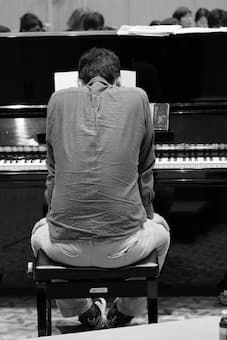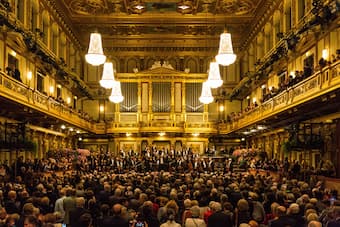
© Kazuo ota on Unsplash
Most of us have had to live in lockdown or under various restrictions due to the coronavirus pandemic for over a year now. It has been a particularly difficult time for musicians, in an already precarious profession, and the knock-on effect of restrictions leading to the shut down for months on end of concert venues and opera houses, rehearsal spaces and other workplaces, has really highlighted the fragility of the musician’s life and how woefully unprepared the industry was to adapt to the challenges of a global pandemic.
The lockdown has offered plenty of time – perhaps too much time – to reflect, and for many of us it has led to a reappraisal of how we work and what our priorities might be. I spoke to a number of musician friends and colleagues in the process of researching this article: it was heartening to find that many have been able to find positives amidst the difficulties, but equally nearly everyone has faced challenges, often financial, over the past year. But what my conversations with musicians have revealed is that most are resilient, adaptable and resourceful, utilising skills developed through their training, a strong work ethic and a willingness to support one another.
Laura Mvula: Sing to the Moon (Chapel Choir of Pembroke College, Cambridge; Anna Lapwood, cond.)

The Golden Hall of the Musikverein Wien © Jonathan on Unsplash
One of the hardest aspects of lockdown has been the lack of face-to-face contact with colleagues. Music is a collaborative, ensemble activity and in addition to rehearsing and playing, discussions and conversations with others are an important and stimulating part of the process of creating music. Something is lost when such conversations take place via a computer screen. Alongside this, regular interactions with musician colleagues allow ideas to flow and offer an important support network as well. Amateur musicians feel this too, with the suspension of orchestras, choirs, piano clubs and courses. Such interactions will feel even more significant when we are able to meet, rehearse and perform face-to-face again.
In terms of managing the day-to-day “sameness” of lockdown, many musicians cited the importance of having a daily routine. The loss of concert bookings has meant not only the loss of income but also the motivation to practice regularly, but equally this has offered more time to explore new repertoire or refresh previously-learnt music. And with all this extra time on their hands, many musicians have allowed themselves a much-needed break from the rigours of daily practicing, rehearsing, travelling and performing. In short, some have given themselves the luxury of a rest.
Those musicians who also teach have perhaps fared better, as teaching at least offers regular income, but many have had to adapt very quickly to online teaching and learning how to use new technology in order to continue to work. This has added to their skill set and allows them to be more flexible in their approach to teaching: when face-to-face teaching is not possible, they can at least continue to offer online teaching. Many have also reported that students seem more motivated and relaxed when playing at home on their own instruments.
For those for whom performing is their life-blood, their identity and their main source of income, the loss of public performances has been particularly difficult. While many musicians have been quick to adapt to livestreaming or outdoor concerts (weather permitting), almost everyone I spoke to profoundly misses the experience of live performance. Livestream offers a different way of giving concerts and has led to an increase in people engaging with classical music, but what all the musicians I spoke to agree on is that no technology can ever truly replace the experience of live music – as a performer and listener.
For more of the best in classical music, sign up to our E-Newsletter



